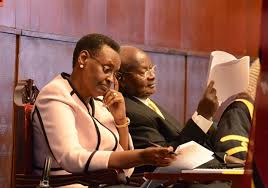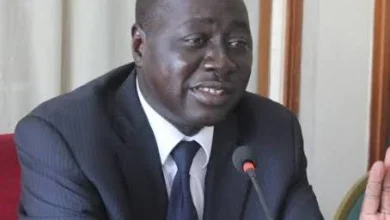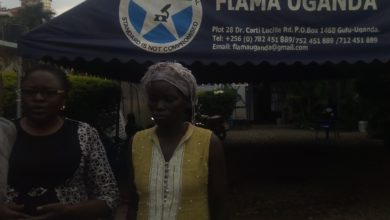
EntertainmentNational
UGANDA: LEADERSHIP CIRIS GOVERNMENT MOVES TO UNDERMINE ARTS EDUCATION AND FREE JOURNALISM
Ugandans remain steadfast in defending education, press freedom, and democracy.
|
|
|
|
|
|||
|
|
|||
Uganda’s Leadership Crisis: Government Moves to Undermine Arts Education and Free Journalism:
Uganda is facing a deepening crisis of leadership, as the dictatorial tendencies of President Yoweri Museveni’s regime continue to spark unrest among Arts teachers and journalists across the country.
For years, the government has deliberately undervalued Arts subjects and persistently underpaid Arts teachers, causing widespread frustration and repeated strikes.
Recent developments indicate a more serious threat: reports suggest that the Minister of Education, Mrs Janet Museveni, has moved a motion in Parliament seeking to completely remove Arts subjects from Uganda’s national syllabus.
This move, if passed, would result in massive job losses among Arts teachers and further diminish Uganda’s intellectual and cultural foundations.
It is seen as part of a wider government agenda to weaken sectors that nurture critical thinking and civic awareness.
At the same time, the State Minister for ICT, Godfrey Kabyanga, is pushing for a law that would ban unlicensed journalists from practising in Uganda.
Without any public consultation, these two controversial motions — from the Ministries of Education and ICT — are reportedly being prepared for tabling and approval in Parliament.
These actions represent serious human rights violations in progress:
Arts teachers are underpaid, and journalists are facing new legal threats intended to silence them.
Both measures appear designed to suppress free expression, weaken professional independence, and consolidate political control.
Observers describe these developments as a form of “gorilla cool warfare” against education and journalism — a calculated attack on the nation’s intellectual class.
The regime’s short-sighted leadership fails to recognise that its repressive tactics are instead uniting Ugandans.
Teachers, journalists, and citizens are increasingly coming together to resist the government’s growing authoritarianism.
Interviews with affected teachers reveal deep frustration.
They accuse the government of deliberate mistreatment through low salaries and policy neglect, leading to low morale and declining teaching quality.
Sources within the ruling NRM also claim that the government views Arts teachers as dangerous because they produce critical thinkers, especially political scientists who could challenge the regime’s hold on power.
This fear of intellectual dissent has driven the government to use education and journalism as tools of control — silencing independent voices and dismantling democratic spaces.
The attempt by Minister Kabyanga to reintroduce the long-rejected motion to ban unlicensed journalists — first dismissed before the 2001 general elections under then Information Minister Basoga Nsadho (now late RIP) — further exposes the regime’s political motives.
Many Ugandans view it as a deliberate plan to control media narratives ahead of Uganda January 2026 general elections, paving the way for possible electoral malpractice.
Instead of targeting journalists, Parliament should prioritise increasing salaries for teachers, police officers, prison staff, pensioners, and the UPDF army, especially amid the rising cost of living.
If the government proceeds with its plan to abolish Arts subjects, it risks igniting widespread protests and demonstrations countrywide.
Ugandans are prepared to defend their right to education, fair pay, and intellectual freedom.
The Arts remain the cornerstone of democratic development and leadership — their removal would make Uganda the first country in history to eliminate them entirely from its education system.
The government must remember that its authority derives from the will of the people.
If Parliament has become a silent vehicle of dictatorship, that era is nearing its end.
Ugandans are ready to decide their future through the ballot in January 2026.
Those who came to power through military force must understand that true leadership is built on life, not violence.
As the next election approaches, the government should focus on democratic reform rather than repression and propaganda.
The international community — including the United Nations, the African Union, Amnesty International, global media houses, and religious leaders — is called upon to intervene and urge the Ugandan government to abandon its authoritarian path and respect citizens’ rights.
Threatening journalists and social media users only deepens public mistrust and violates Article 29 (1)(a) of the Constitution, which guarantees freedom of speech and expression across all media platforms.
Conclusion
Ugandans remain steadfast in defending education, press freedom, and democracy.
The struggle continues in the spirit of unity and patriotism, as echoed in the national anthem:
“Oh Uganda! May God uphold thee,
We lay our future in thy hands…
United, free, for liberty…
|
|
Nov 3, 2025, 3:43 PM (2 days ago)
|
|
|
|||
|
|||





